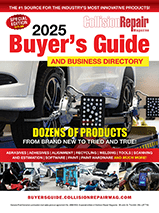DUBLIN–(BUSINESS WIRE)–The “Expected Success of Shared Mobility and Implications on Vehicle Ownership, Forecast to 2022” report has been added to ResearchAndMarkets.com’s offering.
The Expected Success of Shared Mobility and Implications on Vehicle Ownership takes a holistic approach to determining the success of new shared mobility platforms in specific urban areas as well as the implications on personal vehicle ownership.
First, the study analyzes key market drivers and restraints, interpreting factors such as declining vehicle sales, competition from new ridehailing entrants, and proliferation of shared mobility services. This in addition to statistics around urbanization, declining public transit ‘ridership’, and investment from major tech players and OEMs guides the analysis of key variables.
From these variables, such as total cost of vehicle ownership, access to public transportation, mobility service offerings, congestions/traffic patterns, and urban sprawl/city size, we create various scores for select geographies. The cost and convenience score, congestion score, mobility score, and public incentive score help to frame how the variables influence personal vehicle ownership. Applying these variables to the cities of Seattle, Dallas, and Detroit explains why consumers may or may not choose to relinquish a personal vehicle.
While the likelihood to own a personal vehicle strongly influences the success of shared mobility platforms, it is important to dig deeper to uncover other factors that may determine how new mobility services will fare in select geographies. With that in mind, we analyze variables such as population density, tech saturation, parking cost/availability, urban design, and access to public transportation to create scores for select geographies. This includes the entrance score, pedestrian friendliness score, accessibility score, and public incentive score to understand if mobility services are likely to thrive in the aforementioned cities.
Once scores have been calculated from both quantitative and qualitative information, analysis and interpretation of both the success of mobility services and likelihood of personal vehicle ownership specific geographies becomes understandable. By taking an average of all scores, it is possible to compare geographies on the same scale. As such, this study serves as a framework to interpret success of shared mobility services and likelihood of personal vehicle ownership across cities in the US.
This model grows as new information is gathered, demographics, services, regulation, initiatives and variables change. The flexibility provided by this study can help guide future analysis of the topics researched in various urban settings. New mobility and powertrain innovations are certain to change consumer ownership and transit habits. Urban infrastructure development will cause some cities to be more attractive for public transit ridership, personal vehicle ownership, and mobility service adoption. With this in mind, the weight assigned to various scores can be easily adapted with societal changes.
Key Topics Covered:
Executive Summary
- Key Findings-Personal Vehicle Ownership
- Key Findings-Mobility-as-a-Service Adoption
- Key Findings and Future Outlook
- Research Scope and Objectives
- Market Drivers-Vehicle Ownership
- Vehicle Ownership Drivers Explained
- Market Restraints-Vehicle Ownership
- Vehicle Ownership Restraints Explained
- Market Drivers-MaaS
- MaaS Drivers Explained
- Market Restraints-MaaS
- MaaS Restraints Explained
- Market Trends Discussion (2018-2022)
- Predicting Vehicle Ownership
- Criteria and Variables
- Likelihood to Forego Personal Vehicle Ownership
- Predicting the Success of Shared Mobility Services
- Criteria and Variables
- Predicted Success of Shared Mobility
- Vehicle Ownership Profile-Seattle
- Vehicle Ownership Profile-Dallas
- Vehicle Ownership Profile-Detroit
- Success of Shared Mobility Profile-Seattle
- Success of Shared Mobility Profile-Dallas
- Success of Shared Mobility Profile-Detroit
Growth Opportunities and Companies to Action
- OEMs and MaaS Providers
- MaaS Growth Opportunities
- Strategic Imperatives for Success and Growth of New Mobility Services
Key Conclusions
- Likelihood to Forego Vehicle Ownership Summary
-
Success of Shared Mobility Summary
For more information about this report visit https://www.researchandmarkets.com/r/rn0h1j
Contacts
ResearchAndMarkets.com
Laura Wood, Senior Press Manager
press@researchandmarkets.com
For E.S.T Office Hours Call 1-917-300-0470
For U.S./CAN Toll Free Call 1-800-526-8630
For GMT Office Hours Call +353-1-416-8900





















